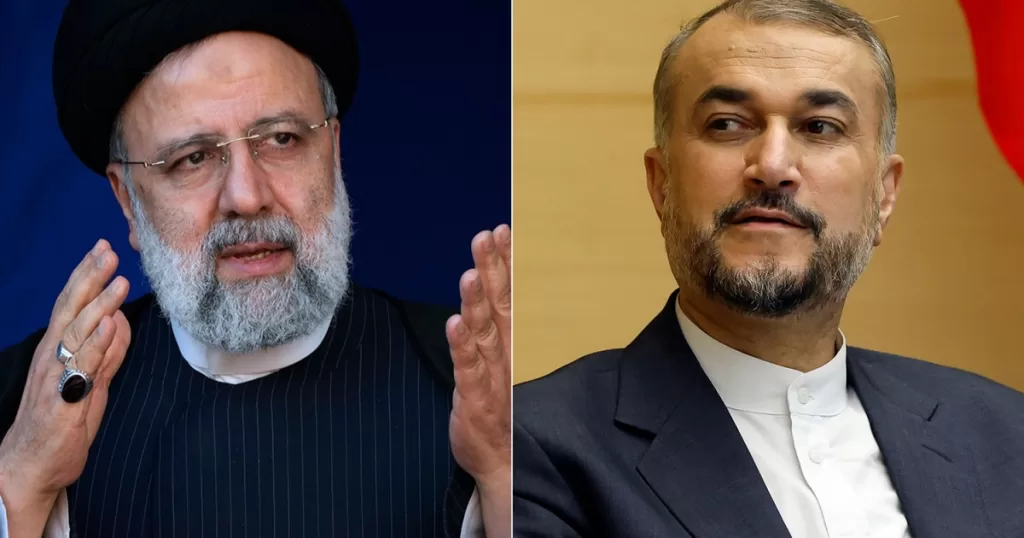President Ebrahim Raisi and Foreign Minister Hossein Amirabdollahian were killed in a helicopter crash in poor weather.
Many Iranians packed into mosques and squares on Monday to pray for the officials, who died on Sunday when the helicopter they were travelling in crashed in poor weather in mountains near the border with Azerbaijan.
Supreme Leader Ali Khamenei, who holds ultimate power with a final say on foreign policy and Iran’s nuclear programme, said First Vice President Mohammad Mokhber will take over as interim president, the official IRNA news agency reported.
“I announce five days of public mourning and offer my condolences to the dear people of Iran,” Khamenei said in a statement. Mokhber, like Raisi, is seen as close to Khamenei.
The bodies of Raisi, 63; Amirabdollahian, 60; and the other officials and staff were being transported to Tabriz, the capital city of Iran’s East Azerbaijan province. A memorial service will be held in the city on Tuesday, local media reported.
Iran’s state television said all government offices and private businesses in the country will be closed on Wednesday to coincide with funerals for victims.
Raisi will be buried in Mashhad, the city where he was born, on Thursday, state TV reported.
Leaders from the United States, European Union, Russia and China are among those who have conveyed their condolences to the families of the Iranian leaders.
An election to choose a new president will take place on June 28 with candidates to be registered from May 30 to June 3, Iranian state media reported.
‘No signal on helicopter’
The charred wreckage of the helicopter was found early on Monday after an overnight search in a blizzard.
Turkish Transport Minister Abdulkadir Uraloglu said the helicopter either did not have its signal system turned on or did not have such a system.
Uraloglu told reporters that because Iran fell within Turkey’s area of responsibility for emergency response, authorities had checked for a signal from the helicopter upon hearing news that it had crashed.
“But unfortunately, [we think] most likely the signal system was turned off or that the helicopter did not have that signal system because those signals would definitely see those signals, but they didn’t,” he said.
Political repercussions
Until the country heads to the polls in June, Mohammad Mokhber will govern the country as interim president, and Ali Bagheri Kani will serve as foreign minister.
“The judiciary, the legislative branch as well as the executive branch are being controlled by the more right-leaning conservatives in Iran currently,” Reza H Akbari, Middle East and North Africa programme manager at the Institute for War and Peace Reporting, told Al Jazeera.
“So some analysts believe Raisi’s death may open up room for more traditional conservative [candidates] to make an attempt at the office of the presidency.”
On the global stage, Raisi and Amirabdollahian had spent almost three years establishing themselves as the faces of Iran.
But their passing will likely not signal a major shift in Iran’s foreign policy, according to Akbari.
“The National Security Council in Iran, the supreme leader and, when it comes to certain foreign policy files, the IRGC [Islamic Revolutionary Guard Corps], bureaucratically and institutionally speaking, set Iran’s foreign policy agenda,” Akbari said.
